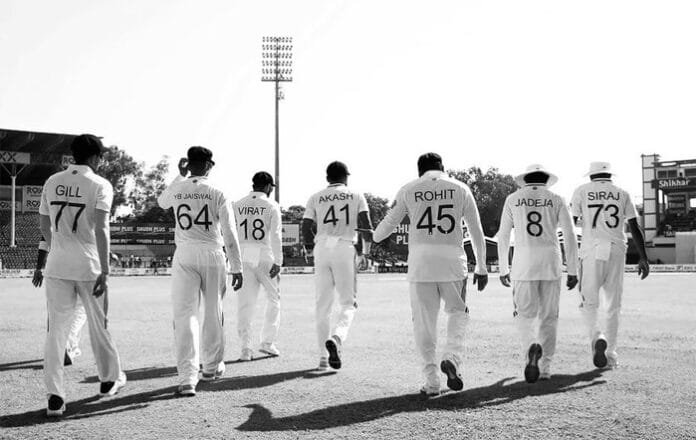India’s dramatic loss in the fourth Test against Australia at the Melbourne Cricket Ground (MCG) has left fans and analysts questioning what went wrong. Despite having an entire day to salvage a draw or even chase down the target, India’s top-order batsmen failed to deliver, resulting in a heavy defeat. Rohit Sharma, the Indian captain, expressed his disappointment after the match and shed light on the core reasons that contributed to India’s defeat. This article delves deep into the match, analyzing the factors that led to India’s downfall and exploring Rohit Sharma’s reflection on the performance.
The Setting: India’s Chase for a Massive Target
India entered the final day of the Melbourne Test with a daunting task ahead of them. Set a target of 340 runs to win, the Indian team was faced with the challenging task of battling through the remaining 90 overs of the match. Australia had posted a formidable score of 474 runs in their first innings, with India managing to score 369 runs, courtesy of Nitish Kumar Reddy’s 114 and Washington Sundar’s 50. While India’s first innings was competitive, Australia’s second innings saw them being dismissed for 234 runs, which gave India the chance to pull off an incredible chase.
Rohit Sharma’s Assessment: The Key Missed Opportunities
According to Rohit Sharma, the Indian captain, India’s inability to capitalize on the numerous opportunities presented during the match was the primary reason behind the loss. In his post-match presentation, he explained his immense frustration with the team’s performance. Rohit emphasized that India had several chances to take control of the game, but they were unable to seize those moments.
“We were not going into the match with the mindset of losing. We were determined to fight until the end, but we fell short,” Rohit stated. He reflected on India’s position during the game, stating that the team had its moments but failed to take advantage. One of the most significant turning points was India’s ability to dismiss Australia’s top-order batsmen, but they were unable to capitalize on this by restricting Australia to a manageable total in the second innings.
Australia’s Resilience: The Game-Changing Partnerships
While India’s performance was disappointing, Australia’s resilience played a crucial role in determining the outcome of the match. The Aussies fought back fiercely in their second innings, and two pivotal partnerships were key in building the total that would eventually prove too much for India to chase down.
The first of these partnerships came between Pat Cummins and Marnus Labuschagne, who added 57 runs for the seventh wicket. Despite India’s bowlers making early inroads, these two Australian stalwarts dug in and ensured that Australia’s target for India remained formidable.
However, it was the final wicket partnership between Nathan Lyon and Scott Boland that would go on to haunt India. This 61-run partnership proved to be the final blow to India’s chances of victory. Rohit Sharma himself admitted that the partnership between Lyon and Boland was a game-changer. “We had Australia on the backfoot, and to allow that last-wicket partnership to flourish really cost us the match,” he acknowledged.
The Key Moment: India’s Failure to Defend Critical Wickets
One of the most pivotal moments in the game came when India failed to break the last two partnerships for Australia. With the tailenders proving difficult to dislodge, India was unable to finish off the Australian innings early enough to give themselves a fighting chance on the final day. The inability to break these partnerships meant that India was forced to chase a target that was beyond their reach, despite having a full day’s play left.
India had a strong bowling lineup, but they were unable to apply the necessary pressure during these critical moments. Nathan Lyon’s resilience at the crease, combined with Boland’s solid defense, ensured that Australia posted a total that was never going to be easy to chase. Rohit Sharma admitted that India had fought hard, but it was these late breakthroughs that ultimately decided the match.
The Disappointing Batting Collapse on Day Five
On the final day, India set out to chase down the target of 340 runs with a sense of determination. However, India’s batting lineup crumbled under pressure, and they were dismissed for just 155 runs. This collapse was the defining moment of the match and sealed India’s fate. While India’s top-order had been in good form earlier in the series, the likes of Rohit Sharma, Shubman Gill, and Virat Kohli failed to make an impact during the chase.
The failure of India’s senior players to perform in the crucial moments of the match raised questions about the team’s mental fortitude. Despite having a day to play, the Indian batsmen struggled against the Australian bowlers, failing to build any meaningful partnerships. Rohit Sharma, in his analysis, acknowledged that the batsmen’s inability to convert starts into substantial contributions had been a significant factor in the defeat.
The Role of Mental Toughness in Test Cricket
Rohit Sharma’s comments also highlighted the importance of mental toughness in Test cricket. Test matches are not only about skill and technique; they require the ability to handle pressure over a long period of time. India’s inability to counter the psychological pressure during the chase contributed to the defeat. The final day of the match saw a series of poor shot selections and uncharacteristic dismissals that ultimately cost India the match.
India’s mental approach in situations like this is a recurring issue that has often been cited in their losses on overseas tours. Rohit emphasized that the team would need to address this if they are to perform better in future matches, especially when chasing such daunting totals.
Looking Ahead: India’s Road to Recovery
After the loss, Rohit Sharma took full responsibility for the team’s performance. He acknowledged the disappointment but also called on the team to remain positive and look forward to the next challenge. The captain mentioned that the team would have to take lessons from this defeat and improve, especially in critical match situations. The Indian team has shown that they have the skill and talent to win matches at the highest level; however, mental toughness and opportunity management will be crucial to their success going forward.
India’s loss in Melbourne left a bitter taste, but it was not without valuable lessons. Rohit Sharma’s leadership will be tested in the coming matches, as India looks to bounce back in the ongoing series. The team will need to reflect on their performances, especially in handling pressure situations, and improve their approach if they are to succeed in future overseas tours and high-stakes encounters.















